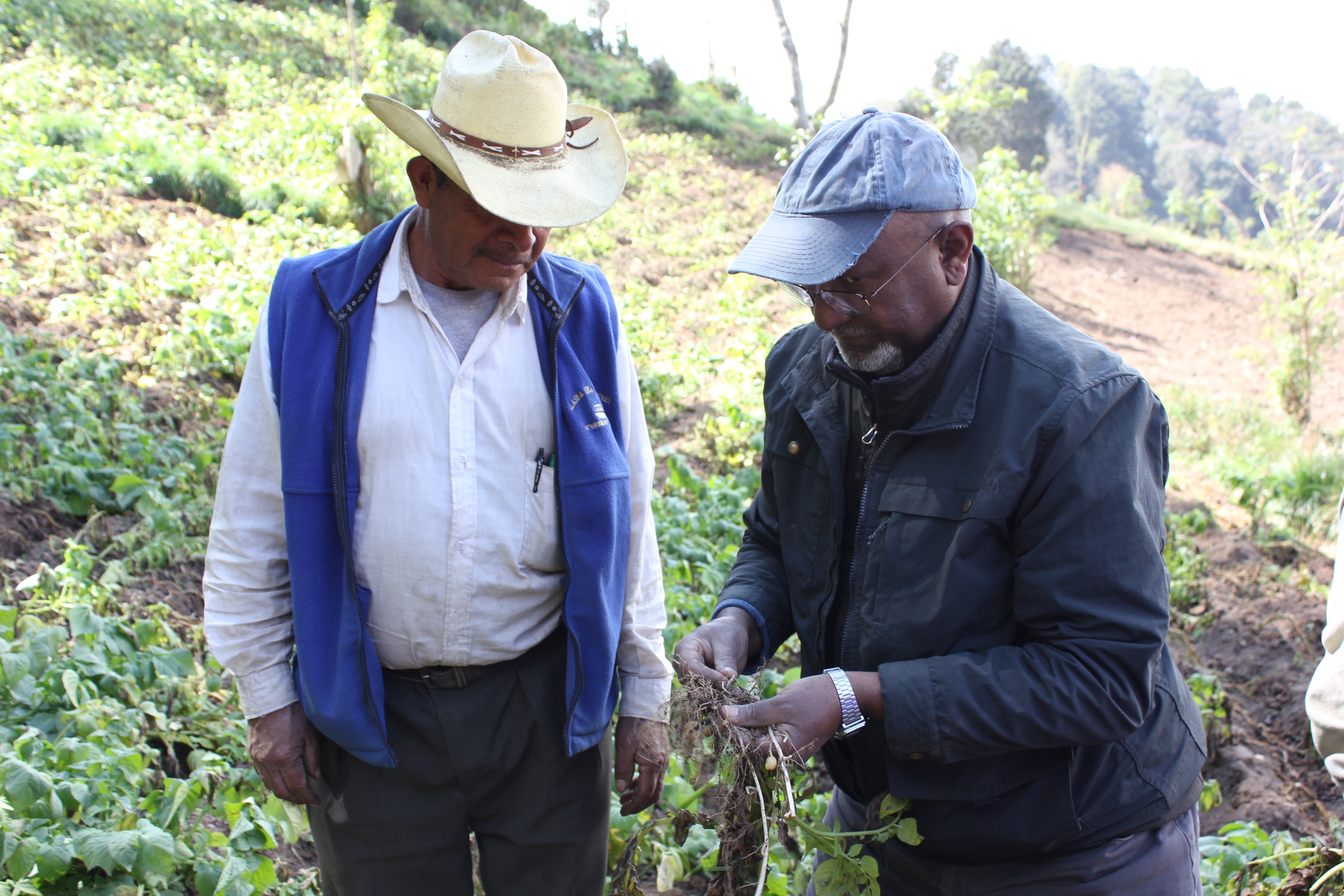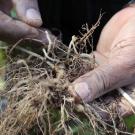
Plant-parasitic nematodes and soil degradation on smallholder farms reduce yields and limit smallholder food security. Current smallholder farming practices can exacerbate soil degradation and therefore increase losses to nematodes, which are prevalent in soils that are biologically and nutritionally degraded. Integrated pest management (IPM) and improving soil health are foundational for developing sustainable smallholder agro-ecosystems.
Smallholder potato farmers of the Western Highlands of Guatemala face yield losses from cyst, root-knot, root-lesion, and spiral plant-parasitic nematodes. Root-knot, cyst and root-lesion nematodes are the top harmful nematodes globally, and are the most serious nematode types affecting potato in this region. Management is a challenge because nematodes have broad host ranges, populations are often mixtures of species, few crops have broad-spectrum resistance, and chemical nematicides are either not preferred, expensive, or legally restricted.
Considering the mechanisms by which nematodes cause yield loss and the fact the smallholders often farm degraded soils, sustainable management of plant-parasitic nematodes is best achieved through a soil health management approach. For smallholder farmers, strategies that improve soil health and reduce population densities of harmful nematodes within a framework of sustainable intensification and conservation agriculture practices are most logical. Integrating soil health knowledge into smallholder agriculture reduces the impact of nematodes and other pests on income, food and nutritional security.
Brent Sipes of the University of Hawaii, Manoa, is leading a research team that is working with smallholder potato farmers in the Western Highlands of Guatemala on integrated technologies for nematode and soil health management, with the goal that farmers achieve sustainable yields that provide income, food and nutritional security.
Working with farmers, the trans-disciplinary research team demonstrates and advocates for integrated practices of cover cropping, intercropping, soil amendment, biopesticides, and crop resistance. They conduct replicated trials to demonstrate effectiveness and engage smallholders in on-farm tests of desirable practices. These trials encompass different socio-cultures represented by farms near San Macros with Andisol soils and farmers near Huehuetenango with Mollisol soils. The research team monitors and collects data from the trials, focusing on nematode control, economics, and soil health. Smallholder farmers record on-farm potato yields. Using cognitive mapping, the trans-disciplinary team modifies treatments where necessary and designs educational plans for the incorporation of climate-smart practices that integrate nematode and soil health management into potato and potato-vegetable cropping. Field days and educational activities are held to motivate smallholder communities towards adoption of desired practices for managing nematode and soil health.

